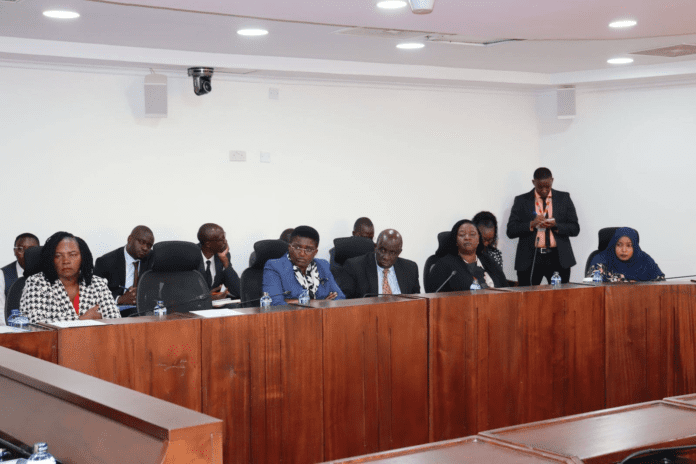
The National Assembly has approved the Social Protection Bill, 2025, a major step toward strengthening Kenya’s support systems for vulnerable groups affected by poverty, disasters, and economic instability.
The legislation, backed by lawmakers across party lines, aims to broaden the national safety net and ensure more Kenyans can access government assistance during times of hardship, such as droughts, pandemics, or job losses.
Introduced by Majority Leader Kimani Ichung’wah, the Bill proposes a monthly stipend for individuals who lose employment due to emergencies like health crises or economic downturns. Unlike the earlier proposal for an Unemployment Insurance Fund, this support would come directly from the national budget without requiring contributions from workers or employers.
“This Bill is about protecting the most vulnerable. It provides services and programmes that help people build resilience while reducing poverty and improving their quality of life,” Ichung’wah said.
The COVID-19 pandemic, which led to nearly two million job losses, served as a wake-up call for the government. Under the new plan, a National Board for Social Protection will be established to oversee fund distribution, vet eligibility, and manage a national social protection registry. It will also handle appeals for those who feel wrongly excluded from the programme.
In addition to cash transfers, the Bill includes non-monetary support such as rehabilitation, home-based care, psychosocial support, and feeding programmes. The board will work closely with county governments to roll out these services across the country.
While MPs generally welcomed the Bill, several raised concerns. Suna West MP Peter Masara criticized the stagnant Ksh. 2,000 monthly stipend, calling for an increase to match the current cost of living. “The value of the money has declined, yet the support remains the same,” he noted.
Endebess MP Robert Pukose praised the creation of an appeal process, especially for older citizens previously left out without recourse. Samburu East MP Jackson Lekumontare raised alarms about bribery in beneficiary selection and the indignities some face during biometric verification. “Some are told to use alcohol to get fingerprints to work—this is unacceptable,” he said.
North Imenti MP Rahim Dawood demanded transparency in how recipients are selected, warning that rural areas are often left out. Nyatike MP Tom Odege supported automatic enrollment for qualifying individuals to avoid inconsistencies and favoritism. Meanwhile, Kwanza MP Ferdinand Wanyonyi highlighted corruption risks, saying funds often fail to reach the intended recipients.
The Bill clarifies that it does not infringe on constitutional rights and is not classified as a money Bill under Article 114. It does, however, anticipate an increase in public expenditure and mandates county-level involvement in implementation.
Currently, Kenya allocates Ksh. 31.3 billion to social protection annually. If signed into law, the new framework is expected to significantly expand the reach of support to more Kenyans affected by poverty and socio-economic challenges.






